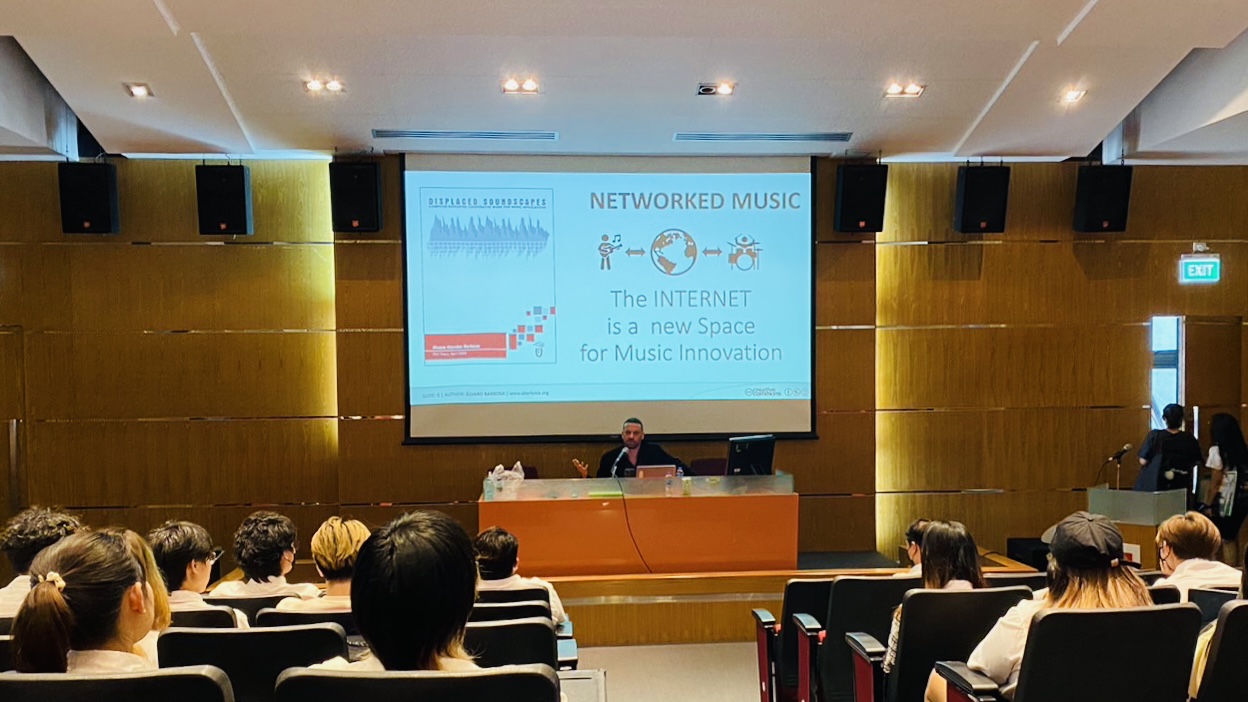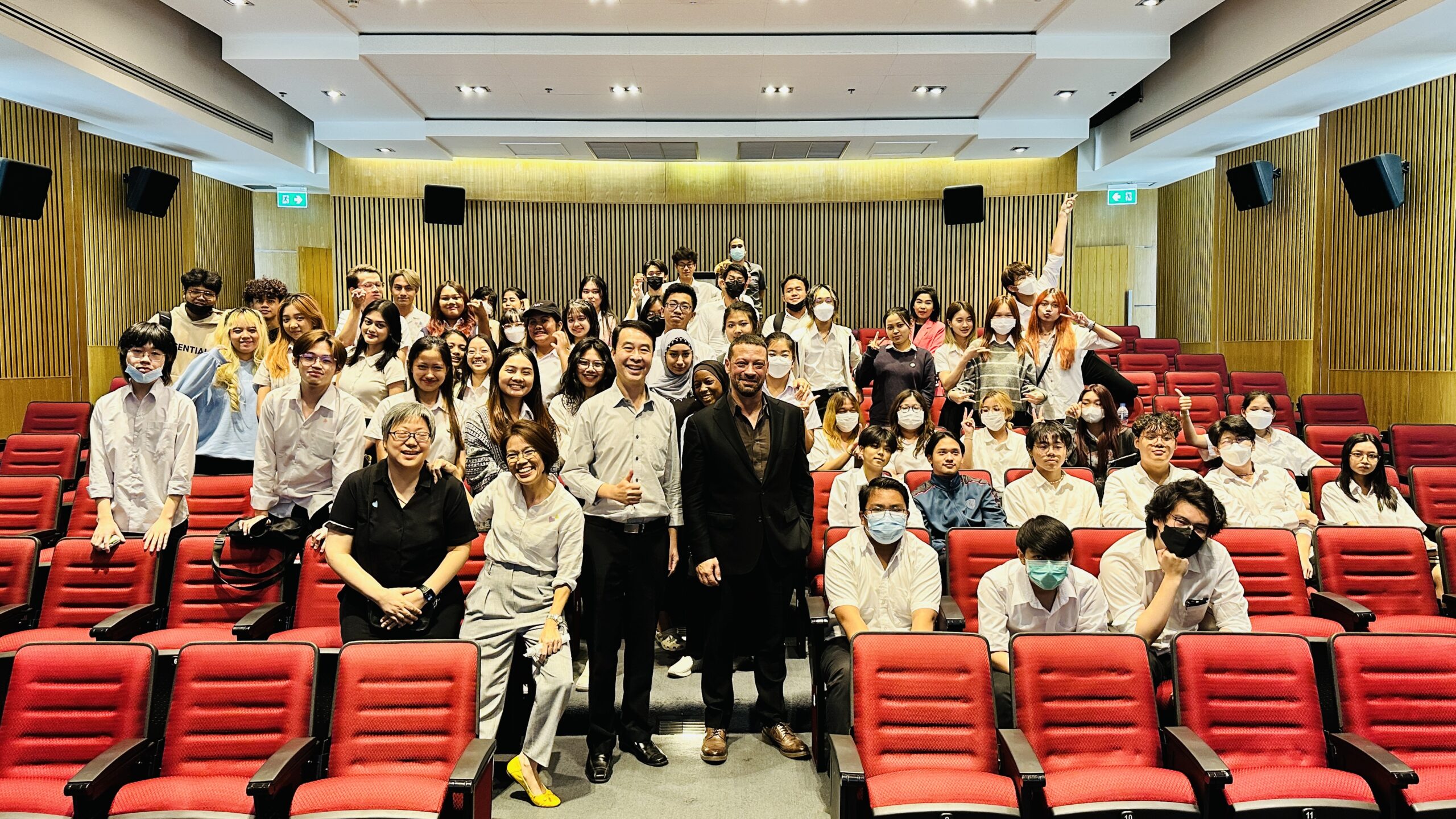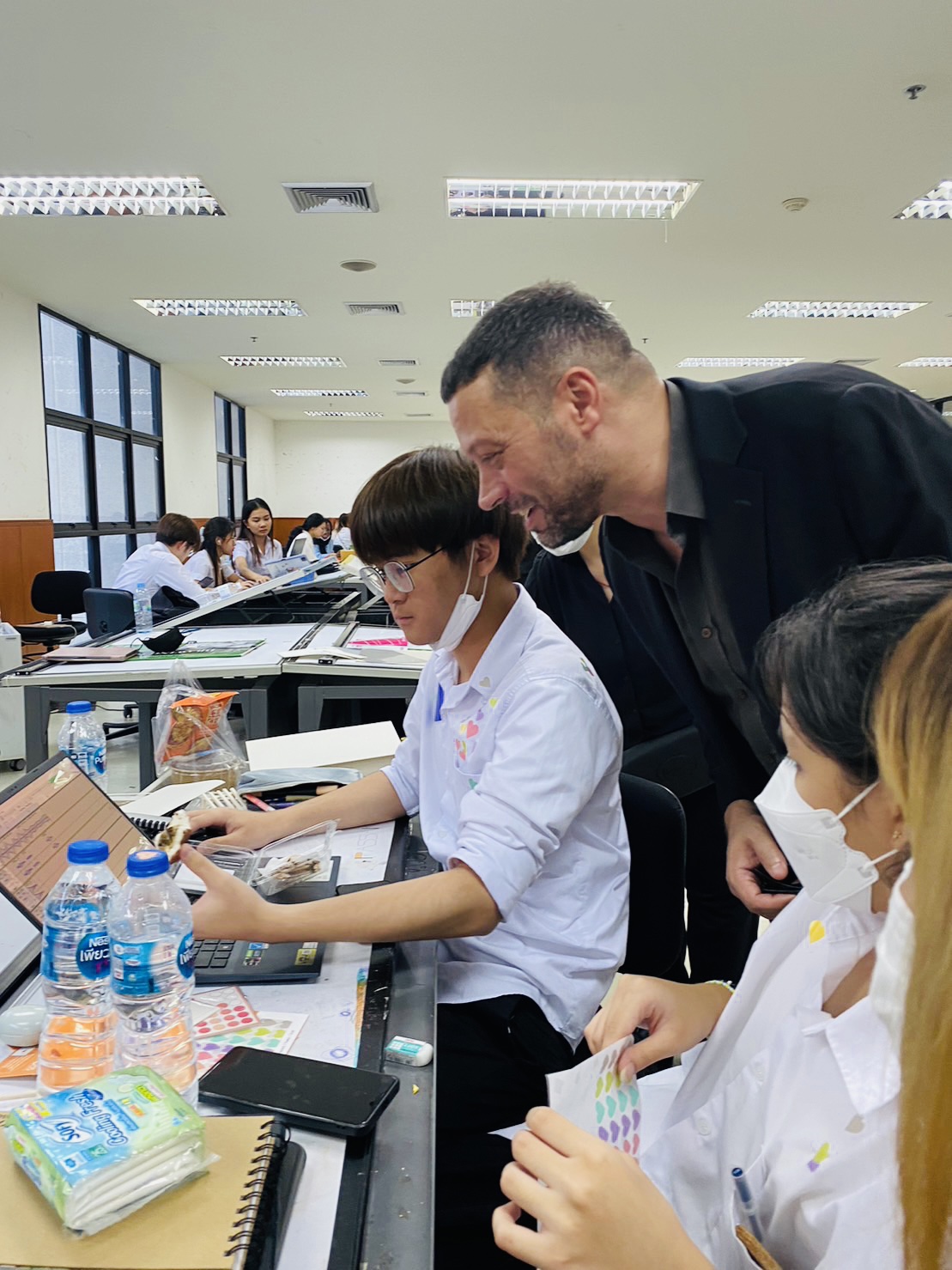Professor Álvaro Barbosa taught “Designing Soundscapes” at Assumption University of Thailand

Professor Álvaro Barbosa taught “Designing Soundscapes” at Assumption University of Thailand
18
Feb
18/02/2023
USJ Vice-Rector for Internationalisation and Academic Affairs, Professor Álvaro Barbosa, gave a series of classes and workshops on “Designing Soundscapes” at Assumption University of Thailand during the month of February.
The Faculty of Arts and Humanities of the University of Saint Joseph Macao, (USJ) is developing a long-term research project on “AI based multi-modal qualitative mapping of Macau soundscape“. This project is supported by the Foundation for the Development of Science and Technology of Macao (FDCT) and gathers research scholars from Portugal, Germany, and Thailand.
As part of the outreach activity in this project, Professor Álvaro Barbosa, Vice-Rector for Internationalisation and Academic Affairs of USJ, coached a series of classes and workshops on the topic of “Designing Soundscapes” at Assumption University of Thailand (AUT).
The AUT is the leading Catholic University in Thailand and a founding member of the Association of Southeast and East Asian Catholic Colleges and Universities (ASEACCU). AUT has had a proactive working relationship with USJ during its tenure as the general secretariat of the Association. Likewise, during his visit, Professor Barbosa, also conducted a series of meetings with its Faculty members and Senior Management to discuss further cooperation strategies for the future.



About the Research Project:
The rationale for this project is two-fold. On the one hand, we propose thoroughly describing the Soundscape in a territory rich in diversity and has huge potential for citizen participation. This will include efforts in noise mapping, sound mapping, soundwalks, grounded theory efforts on rich descriptions of the environment, and the use of alternative objective metrics. With these components, we intend to provide an original and substantial insight into the qualitative dimensions of soundscapes, attending to a wide variety of geographical, and cultural facets, following a multimodal sensing strategy. On the other hand, we intend to leverage the richness of the gathered data by developing artificial intelligence algorithms to autonomously assess and predict the evaluation of a given Soundscape based on recordings alone.









